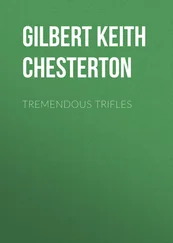Gilbert Chesterton - Manalive
Здесь есть возможность читать онлайн «Gilbert Chesterton - Manalive» весь текст электронной книги совершенно бесплатно (целиком полную версию без сокращений). В некоторых случаях можно слушать аудио, скачать через торрент в формате fb2 и присутствует краткое содержание. Год выпуска: 1912, Издательство: Thomas Nelson and Sons, Жанр: Классическая проза, на английском языке. Описание произведения, (предисловие) а так же отзывы посетителей доступны на портале библиотеки ЛибКат.
- Название:Manalive
- Автор:
- Издательство:Thomas Nelson and Sons
- Жанр:
- Год:1912
- ISBN:нет данных
- Рейтинг книги:3 / 5. Голосов: 1
-
Избранное:Добавить в избранное
- Отзывы:
-
Ваша оценка:
- 60
- 1
- 2
- 3
- 4
- 5
Manalive: краткое содержание, описание и аннотация
Предлагаем к чтению аннотацию, описание, краткое содержание или предисловие (зависит от того, что написал сам автор книги «Manalive»). Если вы не нашли необходимую информацию о книге — напишите в комментариях, мы постараемся отыскать её.
Manalive — читать онлайн бесплатно полную книгу (весь текст) целиком
Ниже представлен текст книги, разбитый по страницам. Система сохранения места последней прочитанной страницы, позволяет с удобством читать онлайн бесплатно книгу «Manalive», без необходимости каждый раз заново искать на чём Вы остановились. Поставьте закладку, и сможете в любой момент перейти на страницу, на которой закончили чтение.
Интервал:
Закладка:
Arthur Inglewood followed his old friend–or his new friend, for he did not very clearly know which he was. The face looked very like his old schoolfellow’s at one second and very unlike at another. And when Inglewood broke through his native politeness so far as to say suddenly, “Is your name Smith?” he received only the unenlightening reply, “Quite right; quite right. Very good. Excellent!” Which appeared to Inglewood, on reflection, rather the speech of a new-born babe accepting a name than of a grown-up man admitting one.
Despite these doubts about identity, the hapless Inglewood watched the other unpack, and stood about his bedroom in all the impotent attitudes of the male friend. Mr. Smith unpacked with the same kind of whirling accuracy with which he climbed a tree–throwing things out of his bag as if they were rubbish, yet managing to distribute quite a regular pattern all round him on the floor.
As he did so he continued to talk in the same somewhat gasping manner (he had come upstairs four steps at a time, but even without this his style of speech was breathless and fragmentary), and his remarks were still a string of more or less significant but often separate pictures.
“Like the day of judgement,” he said, throwing a bottle so that it somehow settled, rocking on its right end. “People say vast universe... infinity and astronomy; not sure... I think things are too close together... packed up; for travelling... stars too close, really... why, the sun’s a star, too close to be seen properly; the earth’s a star, too close to be seen at all... too many pebbles on the beach; ought all to be put in rings; too many blades of grass to study... feathers on a bird make the brain reel; wait till the big bag is unpacked... may all be put in our right places then.”
Here he stopped, literally for breath–throwing a shirt to the other end of the room, and then a bottle of ink so that it fell quite neatly beyond it. Inglewood looked round on this strange, half-symmetrical disorder with an increasing doubt.
In fact, the more one explored Mr. Smith’s holiday luggage, the less one could make anything of it. One peculiarity of it was that almost everything seemed to be there for the wrong reason; what is secondary with every one else was primary with him. He would wrap up a pot or pan in brown paper; and the unthinking assistant would discover that the pot was valueless or even unnecessary, and that it was the brown paper that was truly precious. He produced two or three boxes of cigars, and explained with plain and perplexing sincerity that he was no smoker, but that cigar-box wood was by far the best for fretwork. He also exhibited about six small bottles of wine, white and red, and Inglewood, happening to note a Volnay which he knew to be excellent, supposed at first that the stranger was an epicure in vintages. He was therefore surprised to find that the next bottle was a vile sham claret from the colonies, which even colonials (to do them justice) do not drink. It was only then that he observed that all six bottles had those bright metallic seals of various tints, and seemed to have been chosen solely because they have the three primary and three secondary colours: red, blue, and yellow; green, violet and orange. There grew upon Inglewood an almost creepy sense of the real childishness of this creature. For Smith was really, so far as human psychology can be, innocent. He had the sensualities of innocence: he loved the stickiness of gum, and he cut white wood greedily as if he were cutting a cake. To this man wine was not a doubtful thing to be defended or denounced; it was a quaintly coloured syrup, such as a child sees in a shop window. He talked dominantly and rushed the social situation; but he was not asserting himself, like a superman in a modern play. He was simply forgetting himself, like a little boy at a party. He had somehow made the giant stride from babyhood to manhood, and missed that crisis in youth when most of us grow old.
As he shunted his big bag, Arthur observed the initials I. S. printed on one side of it, and remembered that Smith had been called Innocent Smith at school, though whether as a formal Christian name or a moral description he could not remember. He was just about to venture another question, when there was a knock at the door, and the short figure of Mr. Gould offered itself, with the melancholy Moon, standing like his tall crooked shadow, behind him. They had drifted up the stairs after the other two men with the wandering gregariousness of the male.
“Hope there’s no intrusion,” said the beaming Moses with a glow of good nature, but not the airiest tinge of apology.
“The truth is,” said Michael Moon with comparative courtesy, “we thought we might see if they had made you comfortable. Miss Duke is rather–”
“I know,” cried the stranger, looking up radiantly from his bag; “magnificent, isn’t she? Go close to her–hear military music going by, like Joan of Arc.”
Inglewood stared and stared at the speaker like one who has just heard a wild fairy tale, which nevertheless contains one small and forgotten fact. For he remembered how he had himself thought of Jeanne d’Arc years ago, when, hardly more than a schoolboy, he had first come to the boarding-house. Long since the pulverizing rationalism of his friend Dr. Warner had crushed such youthful ignorances and disproportionate dreams. Under the Warnerian scepticism and science of hopeless human types, Inglewood had long come to regard himself as a timid, insufficient, and “weak” type, who would never marry; to regard Diana Duke as a materialistic maidservant; and to regard his first fancy for her as the small, dull farce of a collegian kissing his landlady’s daughter. And yet the phrase about military music moved him queerly, as if he had heard those distant drums.
“She has to keep things pretty tight, as is only natural,” said Moon, glancing round the rather dwarfish room, with its wedge of slanted ceiling, like the conical hood of a dwarf.
“Rather a small box for you, sir,” said the waggish Mr. Gould.
“Splendid room, though,” answered Mr. Smith enthusiastically, with his head inside his Gladstone bag. “I love these pointed sorts of rooms, like Gothic. By the way,” he cried out, pointing in quite a startling way, “where does that door lead to?”
“To certain death, I should say,” answered Michael Moon, staring up at a dust-stained and disused trapdoor in the sloping roof of the attic. “I don’t think there’s a loft there; and I don’t know what else it could lead to.” Long before he had finished his sentence the man at the door in the ceiling, swung himself somehow on to the ledge beneath it, wrenched it open after a struggle, and clambered through it. For a moment they saw the two symbolic legs standing like a truncated statue; then they vanished. Through the hole thus burst in the roof appeared the empty and lucid sky of evening, with one great many-coloured cloud sailing across it like a whole county upside down.
“Hullo, you fellows!” came the far cry of Innocent Smith, apparently from some remote pinnacle. “Come up here; and bring some of my things to eat and drink. It’s just the spot for a picnic.”
With a sudden impulse Michael snatched two of the small bottles of wine, one in each solid fist; and Arthur Inglewood, as if mesmerized, groped for a biscuit tin and a big jar of ginger. The enormous hand of Innocent Smith appearing through the aperture, like a giant’s in a fairy tale, received these tributes and bore them off to the eyrie; then they both hoisted themselves out of the window. They were both athletic, and even gymnastic; Inglewood through his concern for hygiene, and Moon through his concern for sport, which was not quite so idle and inactive as that of the average sportsman. Also they both had a light-headed burst of celestial sensation when the door was burst in the roof, as if a door had been burst in the sky, and they could climb out on to the very roof of the universe. They were both men who had long been unconsciously imprisoned in the commonplace, though one took it comically, and the other seriously. They were both men, nevertheless, in whom sentiment had never died. But Mr. Moses Gould had an equal contempt for their suicidal athletics and their subconscious transcendentalism, and he stood and laughed at the thing with the shameless rationality of another race.
Читать дальшеИнтервал:
Закладка:
Похожие книги на «Manalive»
Представляем Вашему вниманию похожие книги на «Manalive» списком для выбора. Мы отобрали схожую по названию и смыслу литературу в надежде предоставить читателям больше вариантов отыскать новые, интересные, ещё непрочитанные произведения.
Обсуждение, отзывы о книге «Manalive» и просто собственные мнения читателей. Оставьте ваши комментарии, напишите, что Вы думаете о произведении, его смысле или главных героях. Укажите что конкретно понравилось, а что нет, и почему Вы так считаете.









